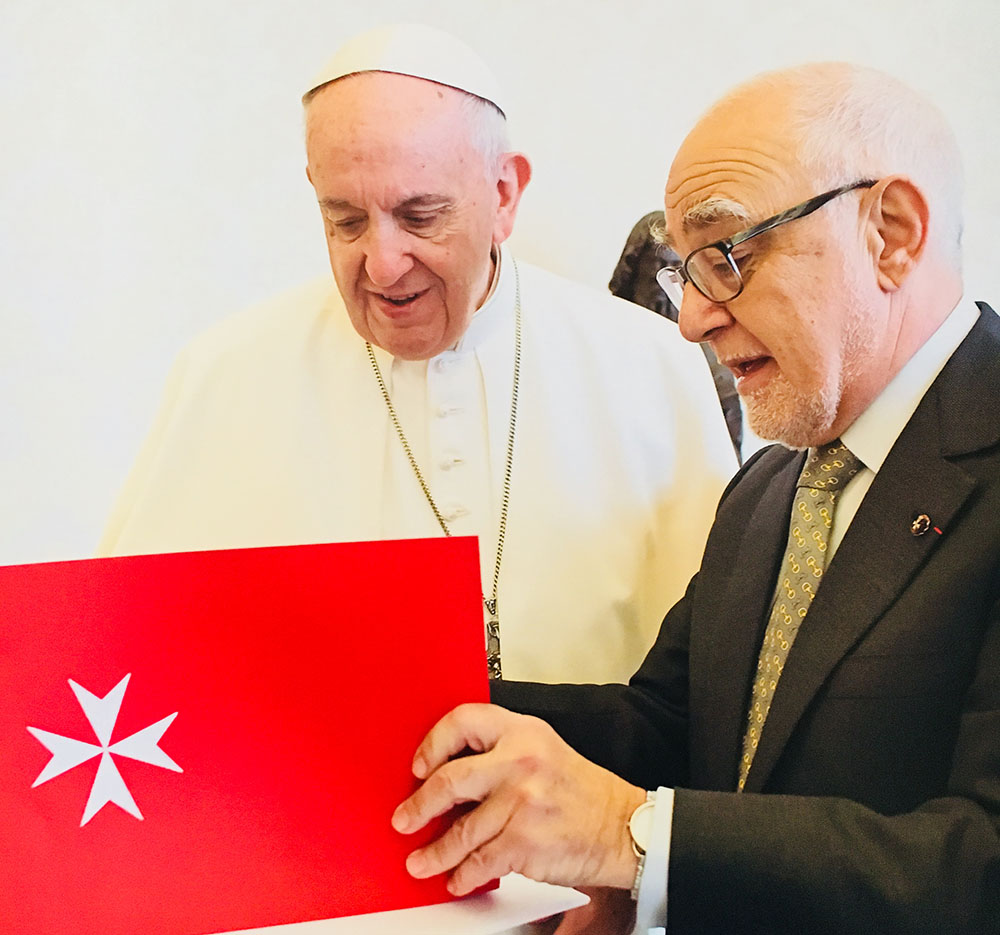 The Order of Malta, recognized as a religious Order in 1113 by Pope Paschal II, is linked to the Holy See, all while being independent as a Sovereign state and subject to international law.
The Order of Malta, recognized as a religious Order in 1113 by Pope Paschal II, is linked to the Holy See, all while being independent as a Sovereign state and subject to international law.
Accordingly, the religious character of the Order coexists with its full sovereignty. The Grand Master is head of a sovereign State and head of a religious Order. In this second capacity the Holy Roman Church gives him the rank of Cardinal.
The eight-pointed Cross which symbolizes the Order represents the eight Beatitudes and is a visual memento of its spirituality.
The Order of Malta is a lay religious Order according to Canon Law, where some of its members are religious, having professed the three vows of poverty, chastity, and obedience, while others have taken a special vow of obedience. The great majority of the Knights and Dames are lay members.
According to the Constitution, members of the Order of Malta are required to maintain exemplary Christian behavior.
Spirituality in Action
The Order of Malta remains true to its inspiring principles: witnessing the Faith and service to the suffering. By serving our Lords, the sick and the poor, the Members of the Order put into practice the Word of God:
For I was hungry and you gave me food, I was thirsty and you gave me a drink, a stranger and you welcomed me, naked and you clothed me, ill and you cared for me, in prison and you visited me(Mt 25:35-36).
The spiritual journey of every member is demonstrated in the actions he or she carries out to care for the poor and the sick. In order to fulfill its humanitarian action distinctively from other local or international NGOs, the Order of Malta relies on a spirituality that has proven its devotion to serving the poor and the sick for over 900 years.
Throughout history, the Popes have always emphasized on the spiritual dimension of the Order of Malta, realized especially through the Orders commitment to respond to all forms of poverty. Through its humanitarian action, the Order of Malta conveys a message of peace and unity and our works in Lebanon, serving the most deprived with no distinction, aim to emphasize the words of Saint John Paul II Lebanon is more than a nation, it is a message to the world.




